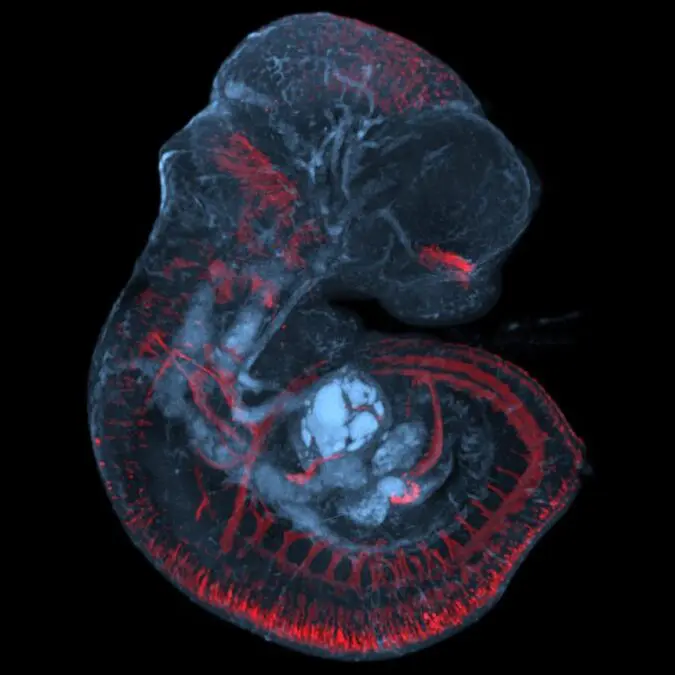
There may be a link between exposure to light during pregnancy and fetal brain development. New findings by researchers at Umeå University, Sweden, working in collaboration with American colleagues, may provide better understanding of certain neurological diseases later in life.
“Ultimately, this discovery may open up possibilities for using the right kind of light stimulation during pregnancy to reduce the risk of neurological disorders in adulthood,” says Professor Lena Gunhaga at Umeå Centre for Molecular Medicine, Umeå University.
The research group at Umeå University, together with researchers in the group of Professor Richard Lang in Cincinnati, USA, now demonstrate that a light receptor called Opsin 3 is already expressed in parts of the central and peripheral nervous systems during the early stages of fetal development. The Opsin 3 molecule has a broad but distinct expression that suggests an important role in the formation of various neurons, neural pathways and areas of the brain and spinal cord. Opsin 3 expression can be linked to a number of motor and sensory neural pathways that regulate movement, pain, vision, and olfaction, as well as memory, mood and emotion.

3D image of an early mouse fetus showing initial Opsin3 expression in red against a background of anatomical structures in blue. The image was taken with optical project tomography. Credit: Wayne Davies
While the idea that light may affect cells inside the body, even in the unborn fetus, may seem peculiar, both calculations and experiments have previously shown that light can pass through skin, soft tissue and the skull to activate photoreceptors.
Opsin 3 detects light in the blue range at a wavelength of approximately 480 nanometres. The Umeå researchers’ discovery of the expression pattern of this receptor suggests that light plays a vital role in the development and subsequent function of the brain. This might explain why the risk of certain neurological and psychiatric diseases varies depending on the seasonal time of birth. So far, this unexplained correlation have been observed in diseases such as Parkinson’s, Alzheimer’s, multiple sclerosis, bipolar disorder, autism, schizophrenia and epilepsy. That said, time of birth is only one of several risk factors for the diseases in question.
“Although more research is required before we can issue recommendations about specific light therapies for pregnant women, we are clearly on an exciting track that may eventually prove highly significant,” says Lena Gunhaga.
While the new findings are based on observations of the brain and nervous system of mice, the function is deemed to be similar in humans. The researchers continue with more detailed studies of how Opsin 3 affects the development and function of the brain. The study is published in the scientific journal eNeuro.
Reference: “Distinct Opsin 3 (Opn3) Expression in the Developing Nervous System during Mammalian Embryogenesis” by Wayne I. L. Davies, Soufien Sghari, Brian A. Upton, Christoffer Nord, Max Hahn, Ulf Ahlgren, Richard A. Lang and Lena Gunhaga, 20 August 2021, eNeuro.
DOI: 10.1523/ENEURO.0141-21.2021






